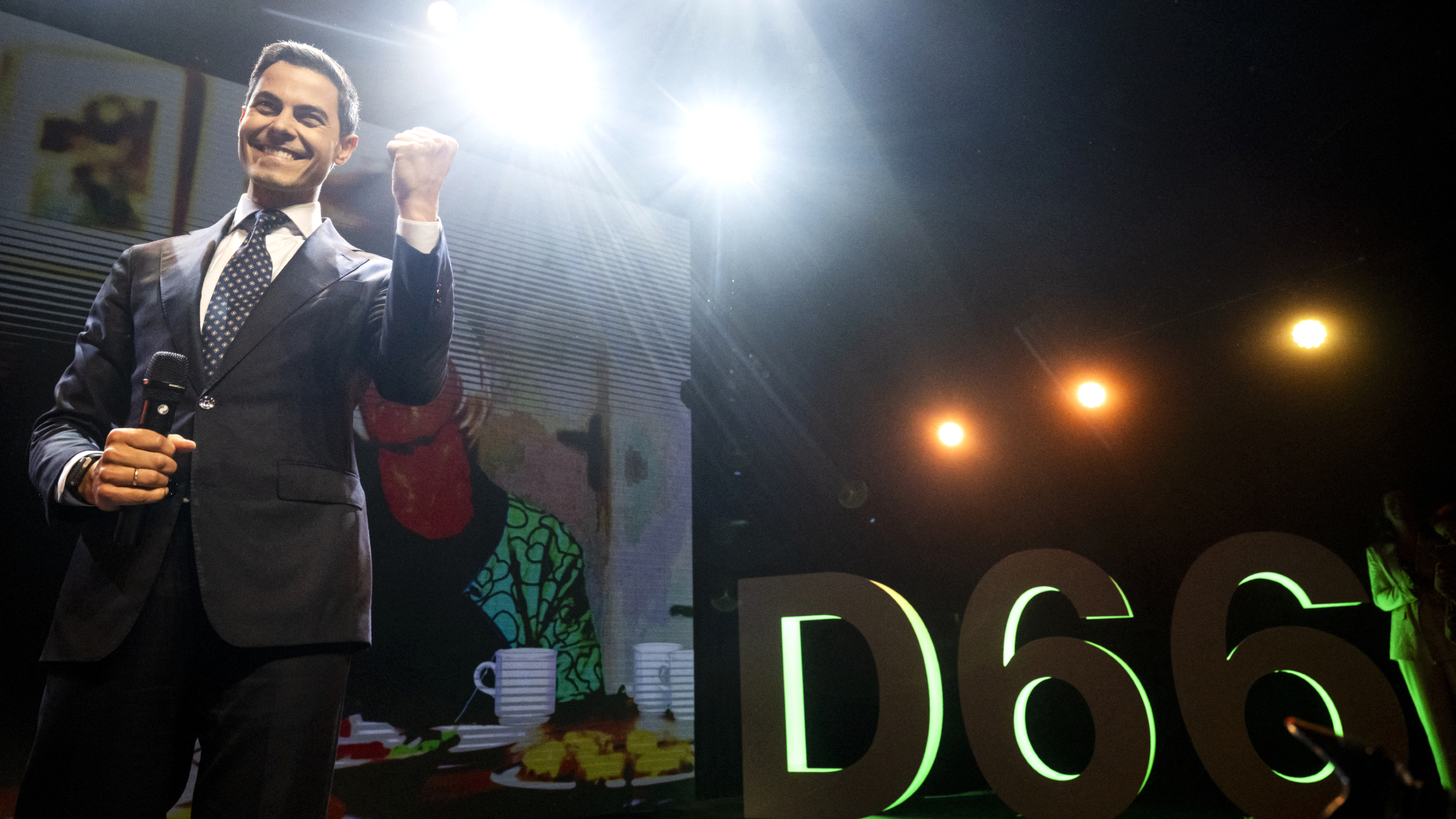Dutch center-left rises in election as far-right falls
The country’s other parties have ruled against forming a coalition


A free daily email with the biggest news stories of the day – and the best features from TheWeek.com
You are now subscribed
Your newsletter sign-up was successful
What happened
The center-left Democrats 66 party appeared to be the winner of Wednesday’s national elections in the Netherlands. D66 was essentially tied with anti-Islam lawmaker Geert Wilders’ far-right Party for Freedom (PVV), with 99% of votes tallied by Thursday morning. But since other parties have ruled out forming a coalition with Wilders, D66’s Rob Jetten is favored to become the youngest Dutch prime minister since World War II and the country’s first openly gay leader.
Who said what
D66 and PVV are each projected to win 26 seats in the 150-seat House of Representatives, a loss of 11 for the PVV and a gain of 17 for D66. “Wilders led his party to a stunning first-place finish in the last election in 2023,” Reuters said, but his “all-conservative coalition” partners blocked him from becoming prime minister and “he brought the government down in June over its refusal to adopt his hardline measures.”
“Millions of Dutch people today chose positive forces and a politics where we can look forward together again,” Jetten, 38, told cheering supporters last night. A victory by the “fervently pro-European” Jetten over the anti-EU populist Wilders would “surely go down as one of the best days Europe’s centrists have enjoyed in years,” Politico said.
The Week
Escape your echo chamber. Get the facts behind the news, plus analysis from multiple perspectives.

Sign up for The Week's Free Newsletters
From our morning news briefing to a weekly Good News Newsletter, get the best of The Week delivered directly to your inbox.
From our morning news briefing to a weekly Good News Newsletter, get the best of The Week delivered directly to your inbox.
What next?
“By excluding the PVV, it will now fall to parties in the political center to work together to get the majority needed to form a government,” The New York Times said. Jetten said he wanted to form a “stable and ambitious” government. But “building stable coalitions is tough,” Reuters said, “and talks are expected to take months.”
A free daily email with the biggest news stories of the day – and the best features from TheWeek.com
Peter has worked as a news and culture writer and editor at The Week since the site's launch in 2008. He covers politics, world affairs, religion and cultural currents. His journalism career began as a copy editor at a financial newswire and has included editorial positions at The New York Times Magazine, Facts on File, and Oregon State University.
